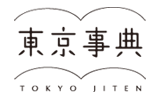Roundtable forum "IN AND OUT OF THE SCENE"
>>> Japanese
With support by the Agency for Cultural Affairs, AIT organized a roundtable forum in February 2015, entitled "IN AND OUT OF THE SCENE - Seven art centers working through art from the edges" to discuss the roles and relevance of art centers today. Participating institutions were 7 art centers which organize an Artist in Residence and various programs.
The forum was conducted in English only, and an excerpt from the 3 hour discussion is now available in Tabloid format (PDF / Japanese and English).
See the publication ▼
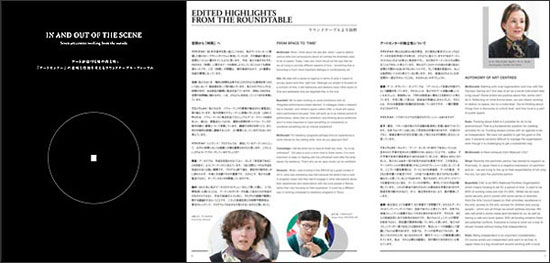
(PDF: 2.9MB)
[Introduction]
The opportunity to host curator Gina Buenfeld from Camden Arts centre in London became a catalyst to organize a roundtable discussion about the meaning and role of art centres' today. The very term 'art centres' in many ways seems old fashioned now, as arts organizations emphasize a more hybrid and networked model of working. Debates about the de-centralization of art have been prominent. However, art has also always operated through places of gathering, focused themes and centres for communities. Historically Tokyo in the
1960s had art centres that served as important hubs for avant-garde gathering, most prominently The Sougetsu Art Centre. These centres dissipated and became
geographically dispersed through the 1980s, and today, like many other art cities in the world, Tokyo's art scene is highly fragmented.
I proposed to ask three interlinked questions through the roundtable: a) how do we work with art and artists today? b) how do we work with broader publics and communities? c) can we think about art centres as 'thinking machines' (in the words of Camden Art Centre's Director Jenni Lomax).
I invited Gina to give a brief overview of the historical and current activities of Camden Arts Centre. Seven Tokyo based independent arts organisations, including AIT, were invited to participate and share their experiences and ideas for the future. A broad range of models was
represented, from artist in residency programs, critical research workshops, archive-building, art schools and artist based spaces.
The heyday of art centres in the 1960s was also embedded in a national politics of democratization, urbanization and participation. This was the era of John Berger's radical 'Ways of Seeing' (1972, BBC television), which in many ways heralded a shift towards art as a process of dialogue, inter-subjectivity and relations. How can we think about art centres in the contemporary context of global capital and information? We can perhaps suggest that a centre today not only points to a physical point in space, but also to an activity of 'centering', to a sense of stilling and concentration in time.
-
【Outline】
IN AND OUT OF THE SCENE,
Seven art centres working through art from the edges:
A roundtable forum in Tokyo about the role and meaning of art centres today, with seven different models of practice.
Wednesday 25th February, 2015 18:00 - 21:00
Venue: Arts Initiative Tokyo [AIT] (B 403 Twin Building Daikanyama, 30-8 Sarugakucho, Shibuya-ku,Tokyo 150-0033)
Organized by: Arts Initiative Tokyo [AIT]
Supported by: Agency for Cultural Affairs Government of Japan in the fiscal 2014
【participants】
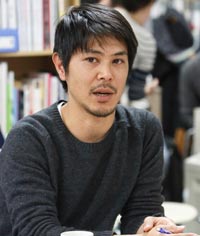 |
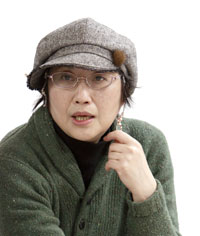 |
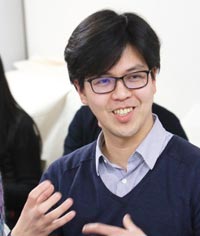 |
Ryota Tomoshige |
Emiko Kato |
Nozomu Ogawa |
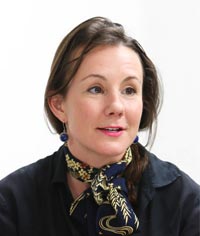 |
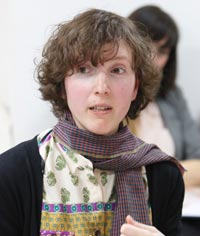 |
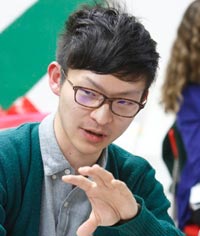 |
Gina Buenfeld |
Emma Ota |
Wataru Shoji |
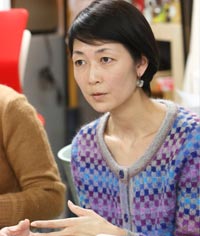 |
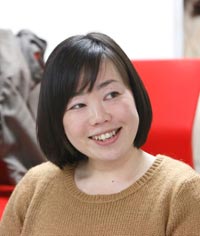 |
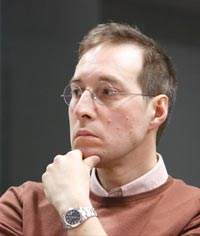 |
Yuko Shiomi |
Naoko Horiuchi |
Roger McDonald |
【Participating organization】
▼ARCUS Project
ARCUS Project involves" Residency for Artists, Experiments for Locals" and aims to support promising artists who engage in creative activities around the world, as well as promoting the Ibaraki area through art. The project started in 1994 as a test artist-inresidence program and was an initiative of the Ibaraki Prefectural Government. After a successful six year test period, the project officially began. By collaborating with emerging artists, curators, and prospective art managers, ARCUS Project connects the Ibaraki area with art and encourages residents of Moriya city to participate in various art projects including exhibitions, workshops, lectures,
and film screenings. Based in the city of Moriya, ARCUS Project is growing as a hub in which revolutionary art is fostered through international programs.
www.arcus-project.com
▼Art Center Ongoing
Art Center Ongoing is a complex art institution with a gallery that introduces the must-see artists that are leading today's art trends. Art Center Ongoing also includes a cafe and bar that are places for communication where visitors can read old and new art books, as well as browsing the library booth containing extensive information about the artists in our network. The institution also actively organises events such as symposiums and live events, with the aim of searching for the possibility of ongoing expression and to ask what's happening in art right now? By establishing new connections, Art Center Ongoing opens up new ground for the
future of expression.
www.ongoing.jp
▼dislocate
dislocate is a platform for research, debate and action upon the public sphere that seeks to invest an invigorated awareness towards the spaces we directly inhabit and attempts to reassess our very sense of agency within these. The platform also proposes through various artistic interventions the creative potential invested in us on an individual and collective scale to construct the spaces and communities around us and challenge our assumed ways of seeing the world. It asserts the importance of questioning and freedom of expression in our daily enactments of civil society, and hopes to open up debate upon the role of so called democratic processes in the politics of the everyday.
www.dis-locate.net
▼PARADISE AIR
PARADISE AIR is an Artist-in-Residence program based on the upper floor of Rakuen pachinko parlour and organised by Matsudo Community Council, a group of local neighborhood associations from around Matsudo Station. Many years ago, Matsudo prospered as a place where travellers could rest between the cities of Edo and Mito. At that time, artists often paid for their lodging with a piece of art and a number of the city's current residents still collect the works of writers and painters from that era. Inspired by a rich
cultural and artistic history, PARADISE AIR continues the tradition of "One Night, One Work of Art" by allowing artists to stay at the residence in exchange for an artwork.
paradiseair.info
▼Art Autonomy Network [AAN]
AAN was founded in Japan in 2005 to examine autonomous art organizations and individuals through the presentation of small but significant art activities across a range of fields. Since its
foundation, AAN has built a network based around art activities that are not often represented in major institutions such as museums and commercial galleries. In fostering an art archive featuring documentation and information from various art organizations, AAN hopes to enhance cultural exchange by initiating and facilitating networks among organizations in both Japan and overseas. Emiko Kato, a director of AAN has been involved a core member of NICA: Nihonbashi Institute of Contemporary Arts which has opened in a centre of Tokyo for creating new contemporary art scenes in 2015, while understanding the global contexts from Japan.
a-a-n.org
▼Camden Arts Centre [CAC]
CAC is a place for world-class contemporary art exhibitions and education. With artists at the core of the programme, CAC strives to involve members of the public in the ideas and processes of today's artists, and the artists who inspire them. In addition to gallery spaces,
the building comprises of studios which schools can use free of charge and in which people of all ages and abilities can learn skills in ceramics, painting, drawing and writing as part of the courses programme.
www.camdenartscentre.org
▼Arts Initiative Tokyo [AIT]
AIT has been running an artist-in-residence program since 2003. In partnership with art organisations in Japan and abroad, over 70 international artists and curators have come to Tokyo to conduct research, build networks and experience the metropolis and its unique clustering of people, information, architecture and objects. The program is unique in that it interfaces with MAD (Making Art Different), the educational program run by AIT. The involvement of visiting artists and curators in both lectures and experimental workshops provides an additional platform for MAD students to exchange a variety of ideas and opinions with peers working in the art industry.
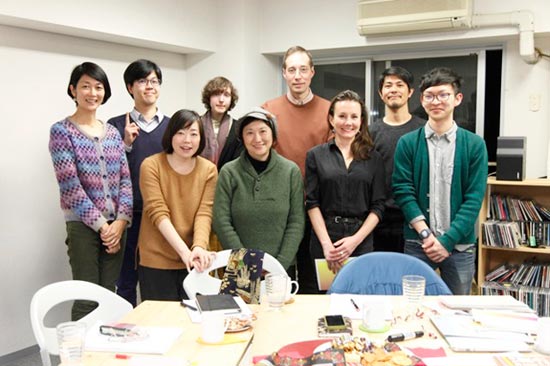
[From Left in the back row] Yuko Shiomi, AIT / Nozomu Ogawa, Art Center Ongoing / Emma Ota, dislocate / Roger McDonald, AIT / Ryota Tomoshige, ARCUS Project
[From Left in the front row] Naoko Horiuchi, AIT / Emiko Kato, AAN / Gina Buenfeld, Camden Arts Centre / Wataru Shoji, PARADISE AIR
Photo by Yukiko Koshima
[About Publication]
Published: 31st March 2015 by Arts Initiative Tokyo [AIT]
Editors: Ben Davis, Roger McDonald, Naoko Horiuchi, Rika Yoda
Translation: Hanare × Social Kitchen Translation
Photography: Yukiko Koshima
Design: Mika Okada, Fruitmachine
See the publication▼
2015-8-28









